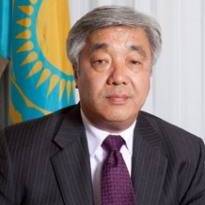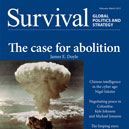In spite of geography, Kazakhstan is eager to be the most Western-oriented member of the Eurasian Union. This was the key message that Foreign Minister of Kazakhstan Yerlan Idrissov implicitly addressed to the German political audience at the DGAP think tank in Berlin/
Idrissov explained how important the recent chairmanship of the OCSE was for his country’s thinking about security issues. Kazakhstan’s concept of Eurasian security is grounded in two major principles: neither great games, nor zero-sum games. Paradoxically, both make Kazakhstan politically closer to Berlin and Brussels than to Moscow or Minsk. (I can imagine that a Russian Foreign Minister’s speech in any European capital would be far more conflictual than Idrissov’s.)
Kazakhstani diplomacy does seem to understand that the Eurasian integration project has to be counter-balanced by a demonstration of even more openness to the West. Germany is of special importance here. One example of Kazakhstan’s soft power diplomacy is the establishment of the Eurasian Club in Berlin, which is meant to be a communicative playground for discussions on East–West relations and prospects for integration among the EU’s eastern neighbors.
Kazakhstan's integration strategy is explicitly about economics and finance. In Idrisov's words, he had never heard Russia’s Vladimir Putin wishing to transform the Customs Union into a political organization (though many Germans would disagree).
“We are interested in economic integration [common market, free movement of capital, etc.], and only after that one can think of other options,” Idrissov said.
He was eloquent in explaining to the Germans that Kazakhstan is a (relatively) liberal country. Answerng to the question about the opposition, he mainly focused on the case of Mukhtar Abliazov who, as he claimed, “has stolen lots of money, left the country, hired very good lawyers, and launched an information war against us. We regard all this as a special operation designed against the government, and react correspondingly. This is not an authentic opposition.” Perhaps, not many in the audience had even heard about Abliazov, but the Foreign Minister talked no less than five minutes about him.
“Don't expect a Jeffersonian democracy in Kazakhstan in the forthcoming future,” Idrisov remarked in conclusion. Perhaps, this was a redundant reminder, seeing that the German foreign policy community is pragmatic enough to accept Kazakhstan as a non-democratic but friendly country with huge business opportunities.
Andrey Makarychev is a Guest Professor at the Free University of Berlin, blogging for PONARS Eurasia on the Russia-EU neighborhood.










